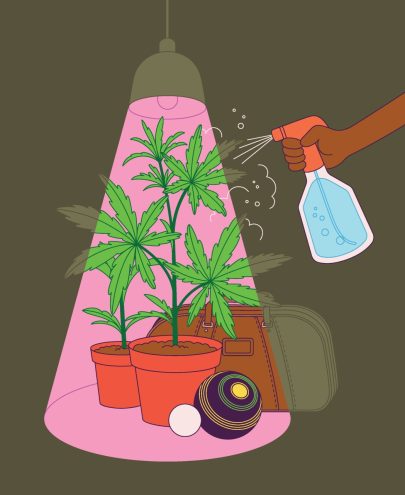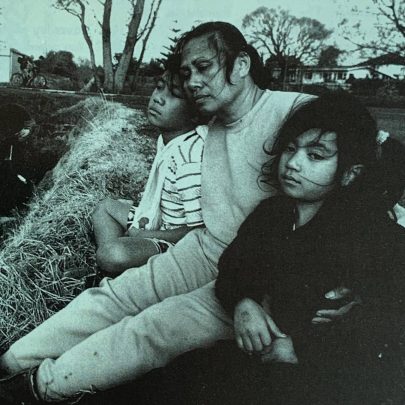Jan 4, 2016 Crime
New Zealand’s attitude towards violence should not be influenced by the wealth or fame of an alleged basher.
This article was first published in the December 2015 issue of Metro. Illustration by Loryn Engelsman.
On a recent Friday night, I took the train to New Lynn, to the kaupapa Maori theatre Te Pou, where Regan Taylor wowed the audience with his new one-man Shakespeare adaptation SolOthello. Taylor plays several characters using tattooed wooden masks, and most of the hour was spent laughing at his villains’ bilingual puns (“your whakapapa will get fucked up!”).
But Desdemona is never allowed to speak and, by the end, the white sheet of her playful wedding night becomes Othello’s murder weapon and her shroud.
This wonderful, all-too-relevant adaptation expertly balances two key ideas. First, it lays out the context for Othello’s non-malicious treachery: a culture which prioritises bromance and male honour over the rights of women. But second, even in this patriarchy, wife-beater Othello is a more despicable villain than Iago.
When Othello spat venom at his silent wife, I thought of Tony Veitch and Chris “Breezy” Brown. During the Rugby World Cup, sports broadcaster Veitch arrogantly downplayed the enormity of having broken his former partner’s back in four places in 2006. And, at time of writing, it is still unclear whether American R&B singer Brown will be allowed into New Zealand to perform in December.
After viciously assaulting his then-girlfriend Rihanna in 2009, he was refused entry into the UK in 2010, and this means he is ineligible for a New Zealand visa unless an exemption is granted. Brown supporters point out that white family-bashers — Vanilla Ice, Tommy Lee — have been allowed into New Zealand. But so was James Brown on multiple occasions.
It is unfortunate that Tariana Turia supports Chris Brown’s entry on the basis that he can tell rangatahi not to follow his lead. Such a message has never been part of Brown’s brand, and bolting it on now won’t fool his core audience, even if it fools their grandmothers. Brown posted on Twitter in 2011: “I’m so over people bringing this past shit up.”
If Brown, who has a long history of violence, is allowed to perform here, our government will be echoing Veitch’s message to New Zealand: people who get violent should be allowed to forget it without contrition. Particularly if they’re rich and powerful and money is to be made from their forgetfulness.
The Establishment is often all too willing to agree. In September, three Auckland businessmen were given name suppression and a wet-bus-ticket fine after they were found guilty of a 2012 “terrifying and harrowing” physical attack on a neighbour.
As business journalist Rod Oram pointed out in this year’s Bruce Jesson Memorial Lecture, New Zealand may not have rampant corruption, but we have “cosyism” and this is “ultimately just as corrosive as cronyism, just as detrimental to progress”.
Cosyism means that when appropriate responses to violence threaten to get in the way of someone making money — whether a radio station or a concert promoter — bromance and male honour are prioritised over the rights of women.
This shouldn’t be about what is fair for the brands involved. It’s about trying to reduce the level of fear and damage in this country. For that to happen, it must be made clear that relationship violence is completely unacceptable. It must also be made clear what loving, healthy relationships look like — a more difficult task, as we usually only hear about the private lives of others when things go wrong.
It’s also important to acknowledge that redemption is possible and should be supported. People won’t ask for help if they fear immediate judgmental thunderbolts. But redemption is not the same as forgetting about what you did because remembering is not convenient.
It’s heartening that men are also speaking out about this issue: Te Tai Tokerau MP Kelvin Davis has been a long-time advocate, while media commentator Russell Brown highlighted the extent of Chris Brown’s offending.
PR consultant Ben Thomas wrote about how Veitch’s attitude directly encourages the amnesia of other abusers. More recently, cartoonist Toby Morris pointed out why high rates of domestic violence are everybody’s problem.
Meanwhile, I walk between New Lynn train station and Te Pou at night looking over my shoulder, in case I’m being followed by someone whose status as a businessman or celebrity makes him exempt from the law.





